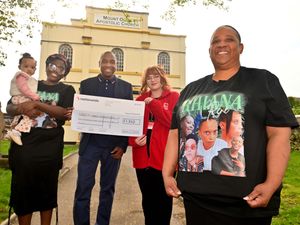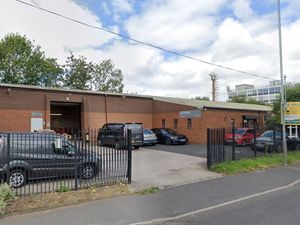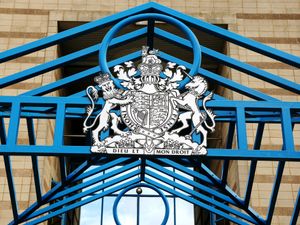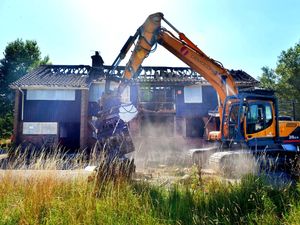Calls for fitting tribute to former Bilston councillor and historian Tom Larkin
A former councillor and historian who was Bilston "through and through" should be recognised with a plaque or another fitting tribute, a councillor has said.
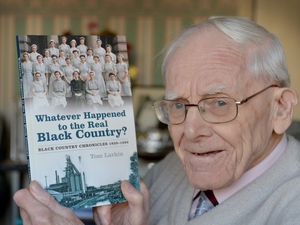
Tom Larkin, who represented Bilston East, died on August 13, aged 90. He was best known for fiercely standing up for the town and its proud history.
It is believed he had been ill following issues with his heart. His death led to many offering heartfelt tributes to the much-loved gentleman and mentor.
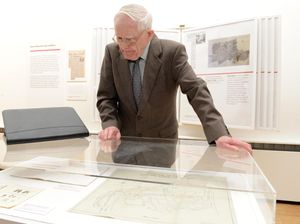
Mr Larkin had been a critic of gGvernment changes which impacted Bilston in 1966 and ended the town's independence as well as subsequent changes.
Now Councillor Stephen Simkins, deputy leader of Wolverhampton Council and who represents Bilston East, is leading calls for a permanent tribute.
He believes Mr Larkin should be properly recognised as former Wolverhampton South East MP and later Lord Bilston, Dennis Turner, was in the town.
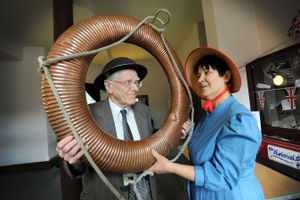
Mr Turner has had a street on a housing development named after him – Dennis Turner Close – along with his brother, another giant of Bilston politics.
Bert Turner, a Bilston councillor who had served as Mayor of Wolverhampton in 2011-2012, had Bert Turner Boulevard named after him three years ago.
Councillor Simkins believes it's time for all three of Bilston's famous sons to be properly recognised with something put in place to recognise Mr Larkin.
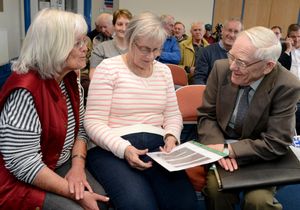
He said: "To be completely fair, the other two giants of Bilston – Dennis Turner and Bert Turner – they've had their recognition, and Tommy Larkin was one of our oldest representatives and one of our best.
"He fought for Bilston independence all the way through and it wasn't feasible. Tom could never get over it [the changes in 1966] and we'll never get the resources to become independent now.
"We've got social problems – when he started there was full employment in Bilston and you could go out of one job and walk into the other – it's a different world now, but he always fought for Bilston and I will carry that on.
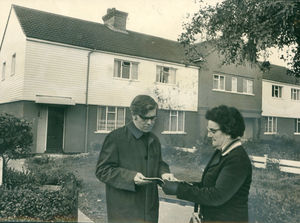
"And [being part of Wolverhampton] doesn't stop us from being fiercely independent of Wolverhampton – like Wednesfield and in Tettenhall. I'm happy to continue to fight the good fight for Bilston and get a plaque or something because Tom rightly deserves the recognition."
The deputy leader of Wolverhampton Council said he would discuss the issue with Councillor Ian Brookfield, leader of the authority, and the chief executive to see what can be done officially.
"There might be a new development where we could name a road after him," Councillor Simkins, who suggested a fitting place for a plaque would be at Bilston Town Hall, said.
"If not [if it doesn't get backed] I'll pay for it myself out of my ward funds," he added.
Mr Larkin was critical of the passing of the Local Government Act on April 1, 1966, which saw Bilston's independence end as it became part of Wolverhampton.
The move also marked the end of Bilston Municipal Borough Council, which Mr Larkin had served on, despite fierce opposition and a campaign against the changes.
The historian described it as a "complete destruction of 19 historic councils" which were replaced by enlarged local government bodies "achieved by forced amalgamation".
Mr Larkin was subsequently critical of the next changes made by the Government in 1974 which saw the creation of the West Midlands County Council, or "the metro" as it became known, which lasted for 12 years – a move he called a "total disaster".
Born in Bissell Street. Mr Larkin was nine years old when the Second World War broke out in 1939. And the former Labour councillor was in his element when speaking about what life was like at that time. "I lived in Bissell Street in Bilston, some of the slums were indescribable," he told the Express & Star last year to promote his Whatever Happened to the Real Black Country book.
"It's amazing to think how people managed to live in conditions like that, every day. We did have our own backyard, but a lot of houses had shared facilities, one toilet between seven families. and outside facilities for washing."
Mr Larkin also served on the enlarged council following the changes in 1966.

